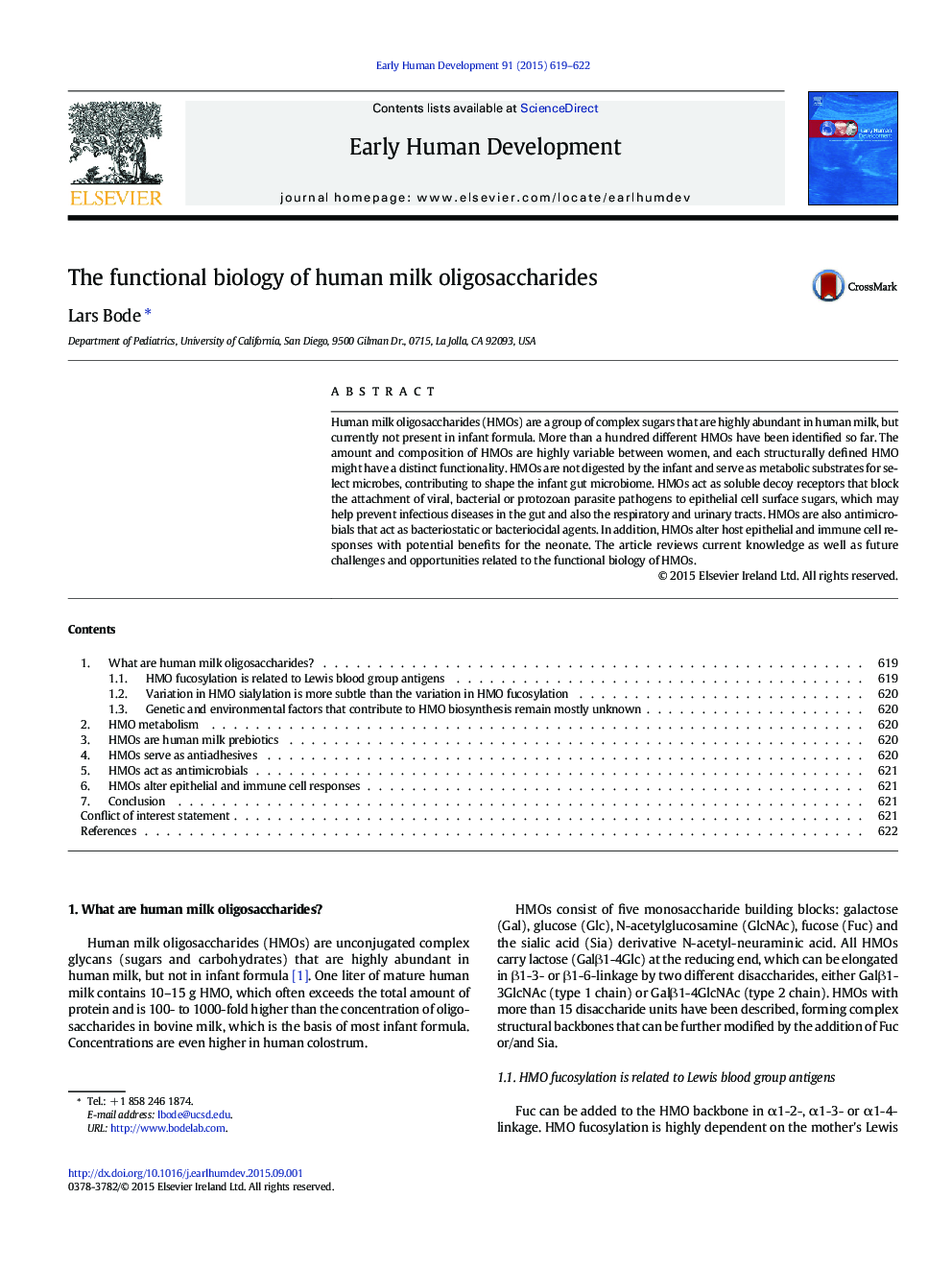| Article ID | Journal | Published Year | Pages | File Type |
|---|---|---|---|---|
| 6171780 | Early Human Development | 2015 | 4 Pages |
Human milk oligosaccharides (HMOs) are a group of complex sugars that are highly abundant in human milk, but currently not present in infant formula. More than a hundred different HMOs have been identified so far. The amount and composition of HMOs are highly variable between women, and each structurally defined HMO might have a distinct functionality. HMOs are not digested by the infant and serve as metabolic substrates for select microbes, contributing to shape the infant gut microbiome. HMOs act as soluble decoy receptors that block the attachment of viral, bacterial or protozoan parasite pathogens to epithelial cell surface sugars, which may help prevent infectious diseases in the gut and also the respiratory and urinary tracts. HMOs are also antimicrobials that act as bacteriostatic or bacteriocidal agents. In addition, HMOs alter host epithelial and immune cell responses with potential benefits for the neonate. The article reviews current knowledge as well as future challenges and opportunities related to the functional biology of HMOs.
